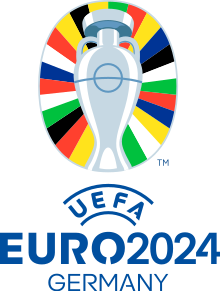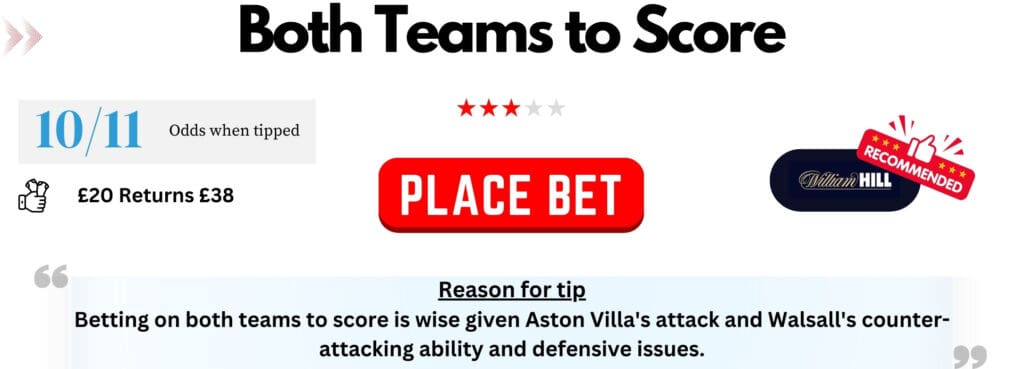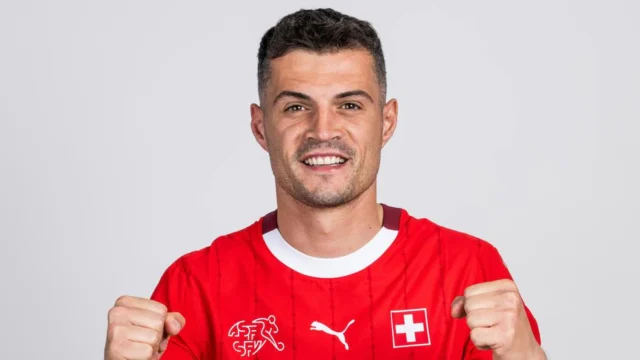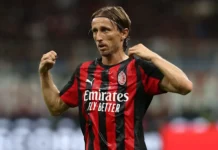Hungary vs Switzerland predictions ahead of this clash at Euro 2024. Hungary and Switzerland begin their Euro 2024 campaigns with a Group A match at RheinEnergieStadion in Köln on Saturday afternoon. Read on for our free betting tips and predictions.


European Championship | Group Stage – Jun 15, 2024 at 2pm UK at Sokoine Stadium

Don’t have a Betvictor account? Click below to claim this offer👇
Hungary vs Switzerland Predictions
Key Stats
– Hungary have scored in each of their last 11 internationals.
– Switzerland have made it out of the group stage in the last five European Championships.
– Dominik Szoboszlai and Barnabas Varga have scored a combined total of eight goals in the Euro 2024 qualifiers.
Tight Contest Expected: Hungary and Switzerland to Share the Spoils in Euro 2024 Opener?
Hungary and Switzerland are set to commence their Euro 2024 journeys with a highly anticipated Group A match at the RheinEnergieStadion in Köln on Saturday. This fixture is crucial for both teams, providing an opportunity to gain an early advantage in a group that includes Scotland and the host nation, Germany.
Offensive and Defensive Strategies
Hungary’s Approach
Hungary, under the stewardship of Marco Rossi, have developed a robust and effective tactical system. They often utilise a 3-4-2-1 formation, focusing on strong defensive foundations while maintaining an attacking edge. Hungary’s defensive trio of Adam Lang, Willi Orban, and Attila Szalai offer a solid base, protecting experienced goalkeeper Peter Gulacsi. This setup allows wing-backs Loic Nego and Milos Kerkez to push forward, adding width to the attack.
Offensively, Hungary rely heavily on the creativity of Dominik Szoboszlai and Roland Sallai. Szoboszlai, in particular, is crucial in linking play between midfield and attack, providing both assists and goals. Barnabas Varga, who leads the line, brings a clinical edge, as evidenced by his brace against Israel in their final warm-up match. Hungary’s strategy aims to exploit the spaces behind the opponent’s defence through quick transitions and precise passing.
Switzerland’s Strategy
Switzerland, managed by Murat Yakin, have a more pragmatic approach, focusing on defensive solidity and structured build-up play. Their formation usually revolves around a 3-5-2 setup, allowing flexibility in both defence and attack. Key defensive figures like Manuel Akanji and Nico Elvedi ensure a sturdy backline, while Granit Xhaka and Remo Freuler provide stability and distribution from midfield.
Offensively, Switzerland rely on the creativity and experience of Xherdan Shaqiri, who operates in a free role, creating chances and linking up with forwards like Zeki Amdouni. The Swiss attack often builds through methodical passing sequences, aiming to control possession and create high-percentage scoring opportunities. Breel Embolo and Denis Zakaria, if fit, add a dynamic element to their play, making penetrating runs and providing physical presence.
Key Player Performances
Dominik Szoboszlai (Hungary)
Szoboszlai is Hungary’s talisman, bringing creativity, vision, and goal-scoring ability to the team. His performances in the qualifiers, where he scored four goals, have been pivotal. Szoboszlai’s ability to unlock defences with precise passes and his threat from set-pieces make him a constant danger.
Granit Xhaka (Switzerland)
Xhaka’s role as the midfield anchor is crucial for Switzerland. His leadership, passing accuracy, and ability to break up play provide the foundation for Switzerland’s tactical setup. Xhaka’s influence extends both defensively and offensively, making him a key player in controlling the tempo of the game.
Managerial Impact
Marco Rossi (Hungary)
Rossi has transformed Hungary into a resilient and competitive side. His tactical acumen and ability to get the best out of his players have been evident in Hungary’s recent successes. Rossi’s emphasis on defensive organisation and quick transitions has made Hungary a formidable opponent, capable of upsetting higher-ranked teams.
Murat Yakin (Switzerland)
Yakin’s tenure with Switzerland has seen mixed results. While his structured approach has brought some stability, there have been criticisms regarding the team’s lack of attacking flair. Yakin’s ability to adapt and inject more creativity into Switzerland’s play will be crucial in determining their success in the tournament.
Expected Goals Analysis
Hungary have an average of 2 goals per game in the qualifiers, indicating their efficiency in front of goal. Their ability to create and convert chances, particularly through players like Varga and Szoboszlai, has been a key factor in their success.
Switzerland, with an average of 2.2 goals per game, also show strong offensive capabilities. Their structured approach ensures a steady creation of scoring opportunities, with Amdouni and Shaqiri being the main contributors. However, their defensive record of conceding 1.1 goals per game suggests vulnerabilities that Hungary could exploit.
Key Areas and Player Duels
The midfield battle between Hungary’s Szoboszlai and Switzerland’s Xhaka will be crucial. Szoboszlai’s creativity and Xhaka’s defensive prowess will define the flow of the game. Additionally, the duel between Varga and Akanji in the attacking third will be pivotal, with Varga’s clinical finishing against Akanji’s defensive strength being a key contest.
Gameplay Predictions
Given the tactical setups of both teams, the match is expected to be tightly contested. Hungary’s strategy will likely involve quick transitions and exploiting spaces behind Switzerland’s defence. Switzerland, on the other hand, will aim to control possession and create structured attacking moves, relying on Shaqiri’s creativity to break down Hungary’s defence.
Betting Angles and Trends
Hungary’s recent form and their solid defensive structure make them a strong contender for a favourable result. Their ability to score consistently and maintain defensive discipline suggests that a low-scoring draw is a likely outcome. Switzerland’s pragmatic approach and reliance on experienced players could see them secure a point in this opening fixture.
Tactical Analysis: Deep-Dive
Offensive and Defensive Strategies
Hungary’s Approach
Hungary, under the management of Marco Rossi, have developed a cohesive and balanced tactical approach. They often line up in a 3-4-2-1 formation, emphasising a strong defensive base while allowing for dynamic offensive transitions. The defensive trio of Adam Lang, Willi Orban, and Attila Szalai provides a solid foundation, protecting goalkeeper Peter Gulacsi. This setup allows wing-backs Loic Nego and Milos Kerkez to contribute offensively, providing width and crossing opportunities.
Offensively, Hungary rely heavily on the creativity and vision of Dominik Szoboszlai and Roland Sallai. Szoboszlai, in particular, plays a crucial role in linking midfield and attack, often creating scoring opportunities with his precise passing and set-piece deliveries. Barnabas Varga, leading the line, brings a clinical edge, demonstrated by his brace against Israel in their recent friendly. Hungary’s strategy revolves around quick transitions and exploiting spaces behind the opposition’s defence through effective counter-attacks.
Switzerland’s Strategy
Switzerland, managed by Murat Yakin, adopt a more pragmatic and structured approach. Their usual formation is a 3-5-2, providing flexibility in both defence and attack. Key defensive figures such as Manuel Akanji and Nico Elvedi ensure a resilient backline, while Granit Xhaka and Remo Freuler control the midfield, providing stability and distributing the ball efficiently.
Offensively, Switzerland rely on the creativity and experience of Xherdan Shaqiri, who operates in a free role, facilitating attacks and creating chances for forwards like Zeki Amdouni. Switzerland’s build-up play is methodical, aiming to control possession and create high-quality scoring opportunities through structured passing sequences. The inclusion of players like Breel Embolo and Denis Zakaria, if fit, adds dynamism and physicality to their offensive play.
Individual Performances of Key Players
Dominik Szoboszlai (Hungary)
Dominik Szoboszlai is the linchpin of Hungary’s midfield. His ability to orchestrate play, combined with his goal-scoring prowess, makes him indispensable. Szoboszlai’s performances in the qualifiers, where he scored four goals, underscore his importance. His capacity to deliver pinpoint passes and his threat from set-pieces make him a key figure in Hungary’s tactical setup.
Granit Xhaka (Switzerland)
Granit Xhaka’s role as the midfield anchor for Switzerland is pivotal. His leadership, passing accuracy, and ability to break up play provide a solid foundation for Switzerland’s tactics. Xhaka’s influence extends both defensively and offensively, making him essential in controlling the game’s tempo and linking defence with attack.
Managerial Impact on Team Performance
Marco Rossi (Hungary)
Marco Rossi has instilled a sense of resilience and tactical discipline in Hungary. His strategic acumen and ability to motivate his players have transformed Hungary into a competitive and well-organised team. Rossi’s emphasis on a strong defensive structure, coupled with quick offensive transitions, has made Hungary a formidable opponent capable of challenging stronger teams.
Murat Yakin (Switzerland)
Murat Yakin’s tenure with Switzerland has seen mixed results. While his structured approach has brought stability, there have been criticisms regarding the team’s lack of attacking flair. Yakin’s ability to adapt and inject more creativity into Switzerland’s play will be crucial in determining their success in Euro 2024. His focus on a disciplined defence and methodical build-up play needs to be balanced with more dynamic attacking strategies to maximise Switzerland’s potential.
Analysis of Expected Goals (xG)
Hungary’s expected goals (xG) metrics indicate a strong attacking potential, averaging 2 goals per game in the qualifiers. Their ability to create high-quality chances is reflected in their shot volume and accuracy, with players like Szoboszlai and Varga contributing significantly to their xG through frequent attempts and dangerous positioning.
Switzerland, with an average of 2.2 goals per game, also demonstrate robust offensive capabilities. Their structured approach ensures steady creation of scoring opportunities, with Amdouni and Shaqiri being primary contributors. However, their defensive record of conceding 1.1 goals per game suggests vulnerabilities that Hungary could exploit.
Comparison of Tactics and Player Performances
Tactically, Hungary are more dynamic and aggressive, focusing on quick transitions and exploiting spaces. Their balanced approach, with a solid defensive base and a potent attack led by Szoboszlai and Varga, makes them a versatile team. Switzerland, in contrast, adopt a more controlled and possession-based style, emphasising defensive solidity and structured build-up play. The creative influence of Shaqiri and the midfield control of Xhaka are pivotal to their approach.
In terms of player performances, Hungary’s Szoboszlai and Varga have been outstanding, consistently contributing to goals and creating chances. Switzerland’s reliance on Shaqiri for creativity and Xhaka for stability highlights their focus on experienced players to control games. Both teams have their strengths, but Hungary’s recent form and balanced tactics give them a slight edge.
Suggestions for Improvement
Hungary
Hungary could enhance their offensive fluidity by integrating more creative plays and encouraging off-the-ball movements. While their defensive solidity is commendable, adding more unpredictability in their attack could make them even more dangerous. Ensuring that players like Szoboszlai and Sallai have the freedom to interchange positions and create space will be crucial.
Switzerland
Switzerland need to improve their attacking dynamics. While their structured play provides stability, introducing more direct and penetrating runs could increase their goal-scoring opportunities. Players like Embolo and Zakaria, if fully fit, should be utilised to add pace and physicality to their attacks. Additionally, Yakin should consider adopting a more flexible tactical approach to adapt to different in-game scenarios.
Strengths and Weaknesses of Strategies
Hungary’s Strategy
Hungary’s strengths lie in their balanced play and defensive organisation. Their ability to transition quickly from defence to attack, utilising players like Szoboszlai and Varga, makes them effective in counter-attacking situations. However, their attack can sometimes lack creativity against well-organised defences, and improving their offensive versatility could mitigate this.
Switzerland’s Strategy
Switzerland’s structured and possession-based play ensures control and stability. Their defensive discipline, led by Akanji and Elvedi, provides a solid foundation. However, their conservative approach can limit their offensive potential, making them predictable at times. Incorporating more dynamic and direct attacking plays could enhance their effectiveness.
Managerial Critique
While Marco Rossi’s impact on Hungary has been largely positive, his occasional conservative tactics can stifle creativity. His focus on defensive solidity is crucial, but allowing more offensive freedom to players like Szoboszlai could increase Hungary’s attacking threat.
Murat Yakin, despite stabilising Switzerland’s play, faces criticism for his overly cautious approach. His reluctance to adapt and inject more creativity into Switzerland’s tactics has been a point of contention. To truly compete at the highest level, Yakin needs to embrace a more balanced and flexible approach, allowing his team to be more dynamic and unpredictable.
Predictions
1. Best Bet: Draw
Considering the defensive strengths of both Hungary and Switzerland, a draw appears to be the most probable outcome. Hungary have shown resilience in their recent matches, losing just once in their last 14 games. Their defensive trio of Adam Lang, Willi Orban, and Attila Szalai has been solid, providing a sturdy backline.
Switzerland, known for their structured approach under Murat Yakin, have also demonstrated their ability to keep games tight. Their qualification campaign, despite being unconvincing, showcased their knack for grinding out results. Both teams are likely to adopt cautious tactics, aiming to avoid an early setback in their Euro 2024 campaign, which should lead to a balanced and evenly contested match.
2. Correct Score: Hungary 1-1 Switzerland
A 1-1 draw aligns with the prediction of a draw and reflects the balance between Hungary’s attacking capabilities and Switzerland’s defensive organisation. Hungary, having scored in each of their last 11 internationals, are likely to find the net, particularly with the creative influence of Dominik Szoboszlai and the finishing prowess of Barnabas Varga.
On the other hand, Switzerland, despite their defensive focus, possess enough attacking quality through players like Xherdan Shaqiri and Zeki Amdouni to breach Hungary’s defence. The Swiss have averaged 2.2 goals per game in their qualifiers, indicating they can score against tough opponents. Thus, a 1-1 scoreline seems a reasonable expectation given the strengths and weaknesses of both sides.
3. Goalscorer Prediction: Barnabas Varga to Score
Barnabas Varga has been in excellent form, netting twice in Hungary’s recent 3-0 win over Israel and scoring in each of his last four appearances in the qualifiers. Varga’s sharp finishing and positioning make him a constant threat in the penalty area.
Given Switzerland’s occasional defensive lapses, Varga’s ability to exploit such moments will be crucial. His recent track record of scoring against various opponents highlights his consistency and goal-scoring instinct. With creative players like Szoboszlai and Roland Sallai supplying him, Varga is well-placed to continue his scoring streak in this match.
4. Corner Prediction: Switzerland to Win More Corners
Switzerland’s structured play and higher ball possession stats suggest they will win more corners than Hungary. During their qualification campaign, Switzerland averaged 5.9 corners per game compared to Hungary’s 5.3. Switzerland’s methodical build-up play often leads to creating opportunities for corners, especially through wing-backs like Silvan Widmer and Ricardo Rodríguez.
Their tendency to push forward and deliver crosses into the box increases the likelihood of earning corners. Hungary’s more counter-attacking style may result in fewer corner opportunities, reinforcing the prediction that Switzerland will dominate this aspect of the game.
5. Shots on Target Prediction: Dominik Szoboszlai to Have 1 or More Shots on Target
Dominik Szoboszlai’s role as Hungary’s main creative force and his tendency to shoot from various positions make him a strong candidate to register at least one shot on target. Szoboszlai has been instrumental in Hungary’s attack, often taking responsibility for set-pieces and long-range efforts.
His ability to find space and take shots from distance, coupled with his proficiency in executing free-kicks, increases the likelihood of testing the Swiss goalkeeper. Szoboszlai’s average of 5.6 shots on target per game during the qualifiers further supports this prediction.
6. Yellow Card Prediction: Manuel Akanji to Receive a Yellow Card
Manuel Akanji, as one of Switzerland’s key defenders, will likely be heavily involved in stopping Hungary’s attacking plays, particularly those led by Szoboszlai and Varga. Akanji’s aggressive style and his role in marking key players make him prone to committing fouls.
Given the high stakes of this match, Akanji may resort to tactical fouls to break up Hungary’s attacks, increasing his chances of receiving a yellow card. His defensive duties and the need to contain Hungary’s forwards will put him under significant pressure, making a booking a realistic outcome.
7. Assist Prediction: Xherdan Shaqiri to Provide an Assist
Xherdan Shaqiri’s vision and playmaking abilities are crucial to Switzerland’s attacking strategy. Operating in a free role, Shaqiri excels at creating chances for his teammates with precise passes and crosses. His experience and technical skills allow him to unlock defences effectively.
In a match where Switzerland will look to control possession and build structured attacks, Shaqiri’s role in providing the final pass will be pivotal. His record in the qualifiers, where he consistently contributed assists, underscores his importance in creating goal-scoring opportunities for forwards like Amdouni and Vargas.
8. Innovative Market Prediction: Total Team Shots on Goal – Hungary Over 10
Hungary’s attacking approach, combined with their recent form, suggests they will register a significant number of shots on goal. During the qualifiers, Hungary averaged 15.1 shots per game, indicating their willingness to take chances. With creative players like Szoboszlai orchestrating the play and Varga’s sharp finishing, Hungary are likely to generate numerous shooting opportunities.
Switzerland’s structured defence will require Hungary to be persistent in their efforts, which could result in a high number of attempts on goal. Therefore, betting on Hungary to have over 10 shots on goal offers strong value given their offensive capabilities and recent performances.
Top UK Bookies & Best Sign Up Offers
Subscribe To Our Newsletter For Exclusive Tips
Want to have exclusive tips from experts tipsters delivered right into your inbox? Subscribe Now To Our Newsletter. We will never spam, we fully respect your privacy!


























